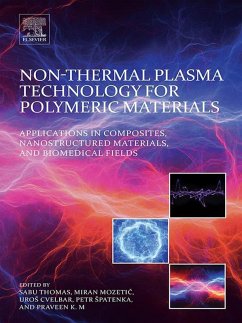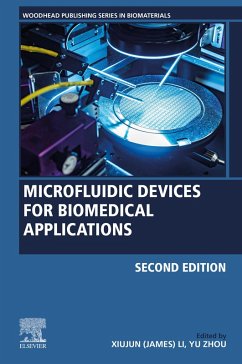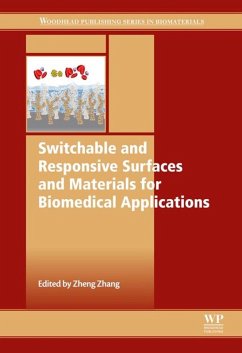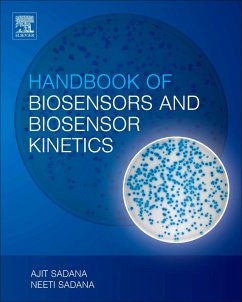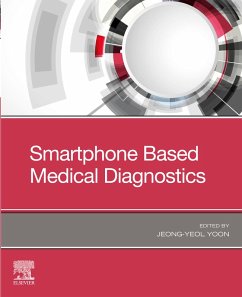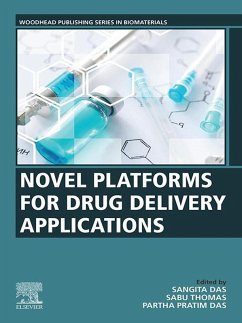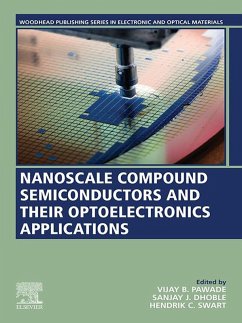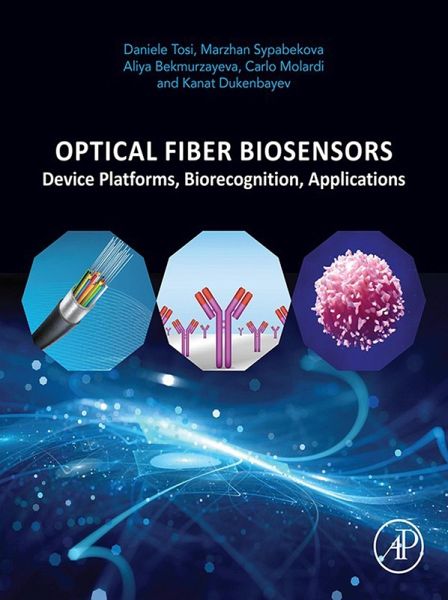
Optical Fiber Biosensors (eBook, ePUB)
Device Platforms, Biorecognition, Applications
Versandkostenfrei!
Sofort per Download lieferbar
95,95 €
inkl. MwSt.
Weitere Ausgaben:

PAYBACK Punkte
48 °P sammeln!
Optical Fiber Biosensors: Device Platforms, Biorecognition, Applications provides a comprehensive overview of the field of fiber optic sensors using an interdisciplinary approach that covers the fabrication of sensing devices and optical hardware, the functionalization to perform selective biorecognition, and the main applications of biosensors, with a present and a future outlook. Chapters discuss the principles of light propagation and the sensing devices suitable to perform biosensing with optical fibers, the process to functionalize the previous devices to selective biosensing, and applica...
Optical Fiber Biosensors: Device Platforms, Biorecognition, Applications provides a comprehensive overview of the field of fiber optic sensors using an interdisciplinary approach that covers the fabrication of sensing devices and optical hardware, the functionalization to perform selective biorecognition, and the main applications of biosensors, with a present and a future outlook. Chapters discuss the principles of light propagation and the sensing devices suitable to perform biosensing with optical fibers, the process to functionalize the previous devices to selective biosensing, and applications in cells, small molecules, biomarkers and protein sensing, with a birds eye view on the most important results. This book provides a coherent picture of fiber optic biosensors, from the start (the device) to the end (the application), explaining in simple terms what is the whole process for development of a biosensor. The book also contains practical material (e.g. commercial instruments, fabrication instructions, medical standards for biocompatibility) that cannot be easily found elsewhere, and this is very useful for researchers to plan their development and build their labs. - Covers the technologies and operating principles of optical fiber devices used in biosensing - Contains chapters on the chemistry and operational strategy to functionalize a fiber device to become an effective biosensor - Addresses the main applications of fiber optic biosensors and their specialization
Dieser Download kann aus rechtlichen Gründen nur mit Rechnungsadresse in A, B, BG, CY, CZ, D, DK, EW, E, FIN, F, GR, HR, H, IRL, I, LT, L, LR, M, NL, PL, P, R, S, SLO, SK ausgeliefert werden.




